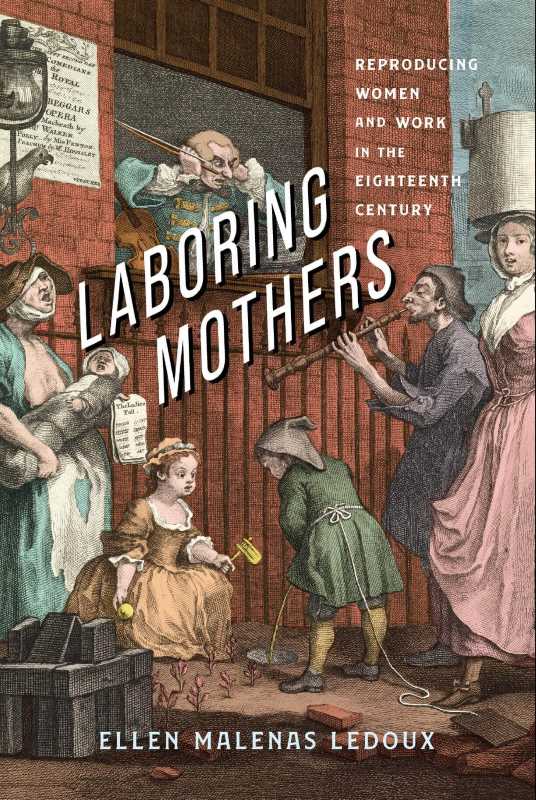Author. Teacher. Leader.
Ellen Malenas Ledoux, Ph.D.
Ellen Malenas Ledoux is a Professor in the English and Communication Department at Rutgers University-Camden. Her research focuses on transatlantic literature of the eighteenth century. She is the author of two books: Laboring Mothers: Reproducing Women and Work in the Eighteenth Century (University of Virginia Press, 2023) and Social Reform in Gothic Writing: Fantastic Forms of Change, 1764-1834 (Palgrave Macmillan, 2013). She has published widely on women’s cultural history and Gothic writing in journals such as Early American Literature, Studies in Romanticism, The Eighteenth Century: Theory and Interpretation, Women’s Writing, and Studies in Eighteenth-Century Culture.
For undergraduates, she teaches a variety of small seminars in her area of specialization, such as The Romantic Period and English Drama 1660-1800, and larger survey classes, including Women in Literature, Text and Adaptation, and Literature Appreciation. At the graduate level, she regularly teaches classes such as Romantic Women Writers and Gothic Fiction while also supervising students’ MA theses on topics related to the long eighteenth century.
She currently serves as Chair of the English and Communication Department. Previously, she has directed the undergraduate Liberal Studies Program (2022-2025), the MA Program in English (2014-2018) and the Gender Studies Program (2012-2015). She has also served as the Book Reviews Editor for the journal Women’s Writing from 2013 to 2021.
RESEARCH
Books, articles, grants, and conferences
TEACHING
Courses, reviews, civic engagement, grants and awards
SERVICE
Academic administration and leadership positions
OUTREACH
Media mentions and community outreach
Latest News: Laboring Mothers

Laboring Mothers begins with the premise that ideas about what constitutes “good” and “bad” mothers fundamentally structure the way we think about women, families, and work. Laboring Mothers traces the roots of these ideas, especially as they relate to work outside the home, back to the eighteenth century. Through analyzing aesthetic and historical representations of mother-workers in Britain and her colonies, the book demonstrates how the intersection of two eighteenth-century phenomena—the transformation of the public sphere and the “cult of motherhood”—plays a critical role in creating lasting models of ideal and incompetent mothers.
Enlightenment concepts of maternity claimed women’s nurturing behavior as natural and figured women’s domestic work as central to forming future citizens and subjects. The book argues that these same concepts paradoxically galvanized privileged women’s ability to earn income and to professionalize. Drawing on the late eighteenth-century rhetoric of women as nourishers and domestic educators, savvy and industrious mothers suggested that work, rather than depriving children of their attention, enabled them to better care for their offspring. At the same time, this model of mother as caretaker disqualified the most marginalized women (the poor, the enslaved, the sexually stigmatized) who were obligated to work outside the home, from being perceived as suitable, even competent mothers. Laboring Mothers suggests that our contemporary discussion around “work-life balance” originates in a false construct meant to place the burden of resolving systemic forms of inequality on marginalized women. The book thus creates a through line between the difficulties faced by (re)productive women today and the unfulfilled promises of the Enlightenment.

Laboring Mothers: Reproducing Women and Work in the Eighteenth Century
Address
Armitage Hall, Fourth Floor
311 North 5th St.
Camden NJ 08102
Contact
(856) 225-2997
eledoux@rutgers.edu

